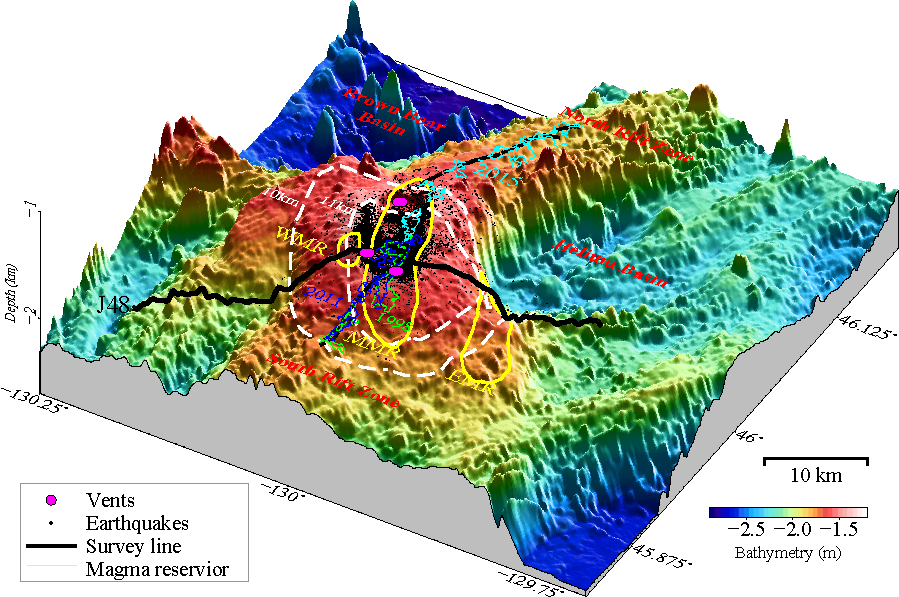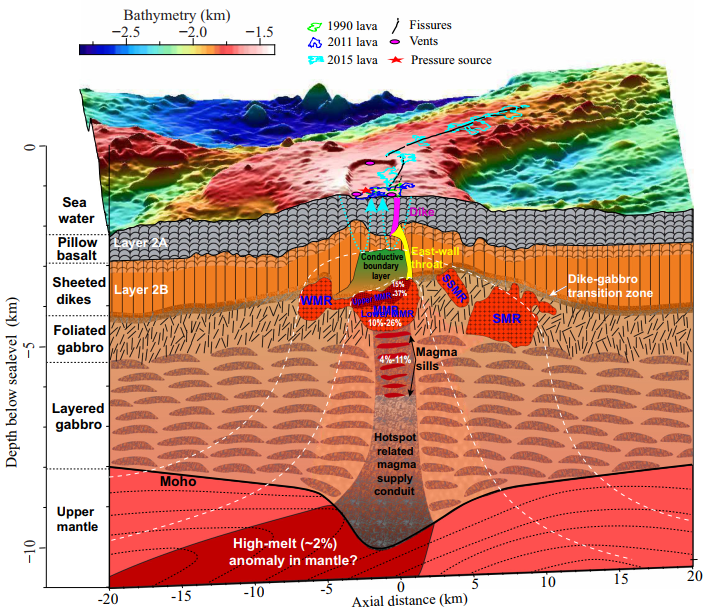The architecture of magma plumbing systems plays a fundamental role in volcano eruption and evolution. However, the precise configuration of crustal magma reservoirs and conduits responsible for supplying eruptions are difficult to explore across most active volcanic systems. Consequently, our understanding of their correlation with eruption dynamics is limited.
Axial Seamount is an active submarine volcano located along the Juan de Fuca Ridge, with known eruptions in 1998, 2011 and 2015 (Fig 1). Here we present high-resolution images of P-wave velocity, attenuation, and estimates of temperature and partial melt beneath the summit of Axial Seamount, derived from multi-parameter full waveform inversion of a 2D multi-channel seismic line. Multiple magma reservoirs, including a newly discovered western magma reservoir, are identified in the upper crust, with the maximum melt fraction of 15%-32% in the upper main magma reservoir (MMR) and lower fractions of 10% to 26% in other satellite reservoirs. In addition, a feeding conduit below the MMR with a melt fraction of 4%-11% and a low-velocity throat beneath the eastern caldera wall connecting the MMR roof with eruptive fissures are imaged. These findings delineate an asymmetric shallow plumbing system beneath Axial Seamount, providing insights into the magma pathways that fed recent eruptions (Fig 2).

Fig 1. Geological setting of Axial Seamount on the Juan de Fuca ridge

Fig 2. A schematic model of the magmatic system below Axial Seamount
CITATION: Yang, J., Zhu, H., Zhao, Z. et al. Asymmetric magma plumbing system beneath Axial Seamount based on full waveform inversion of seismic data. Nat Commun 15, 4767 (2024). https://doi.org/10.1038/s41467-024-49188-y

